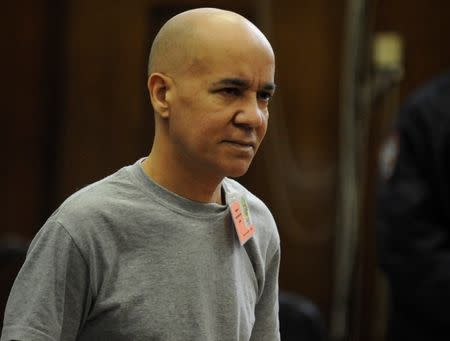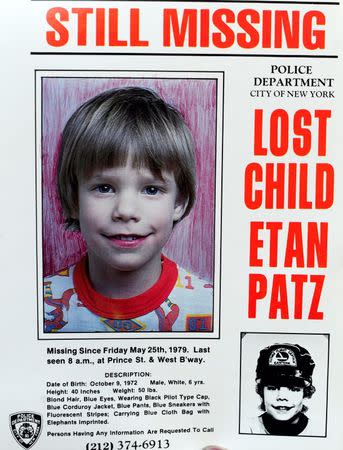Opening statements to begin in decades-old case of missing NYC boy
By Natasja Sheriff NEW YORK (Reuters) - Opening statements are due to begin on Friday in the trial of Pedro Hernandez, accused of kidnapping and killing 6-year-old Etan Patz decades ago in a notorious case that ignited a national movement to find missing children. Selection of the jury to weigh the fate of the former deli worker concluded on Thursday before Judge Maxwell Wiley in state Supreme Court in Manhattan. Patz vanished while walking alone to a school bus stop for the first time in the Soho neighborhood of Manhattan on May 25, 1979. His body was never found, but he was declared legally dead in 2001. Hernandez, 53, confessed to the crime in 2012, but his defense attorney has said the confession was coerced and that Hernandez is mentally ill. He is charged with kidnapping and murder. More than 700 potential jurors were considered in a selection process that took more than three weeks. More than half of them were dismissed after completing a detailed 22-page questionnaire that asked about their knowledge of the case, which has gotten national attention for more than three decades. Some potential jurors were asked if the lack of a body would make it difficult for them to convict someone of a crime. Assistant District Attorney Joan Illuzzi told them the case would not feature "high tech forensic evidence," but would take them back 35 years "to a time when the Brady Bunch was still on TV." Patz' disappearance prompted President Ronald Reagan to sign into law the Missing Children’s Assistance Act, and Patz was one of the first missing children whose picture appeared on a milk carton. In 2012, investigators received a tip from Hernandez's brother-in-law, who told police Hernandez allegedly confessed to the crime to a church prayer group in the 1980s. Hernandez, in a videotaped confession to police, said he lured Patz to the basement of the deli where he worked near the child's home, strangled him and dumped him in an alley. Hernandez has recanted, and his defense attorney has argued he has a history of mental illness, including hallucinations. The defense fought to have the confession ruled inadmissible, arguing Hernandez did not understand his rights, but the judge has ruled that it was legally obtained. Hernandez was 18 when Patz disappeared. He later moved to southern New Jersey, where he was living with his wife and daughter at the time of his arrest. (Editing by Ellen Wulfhorst. Editing by Andre Grenon)


